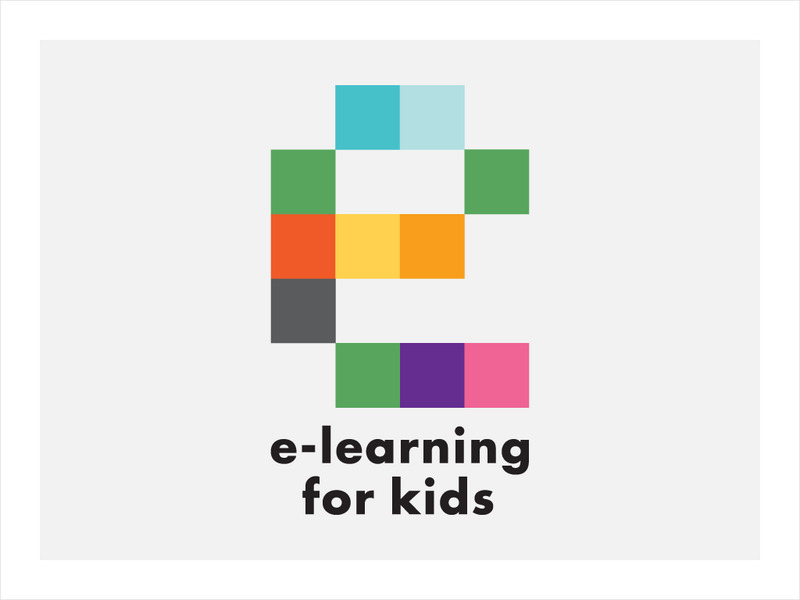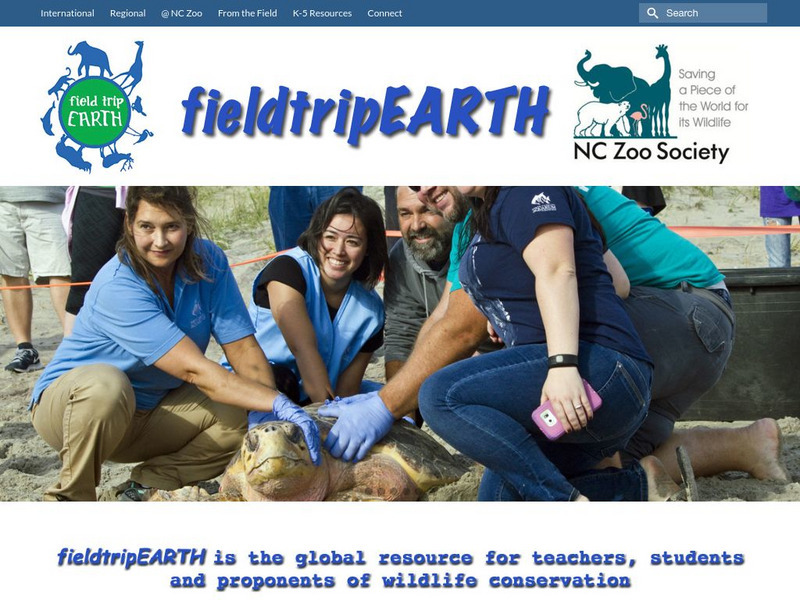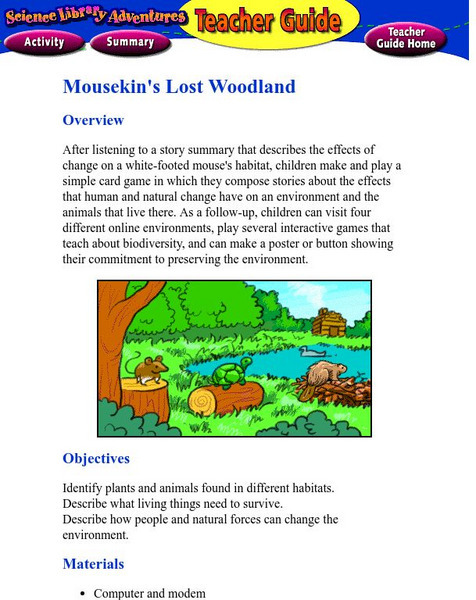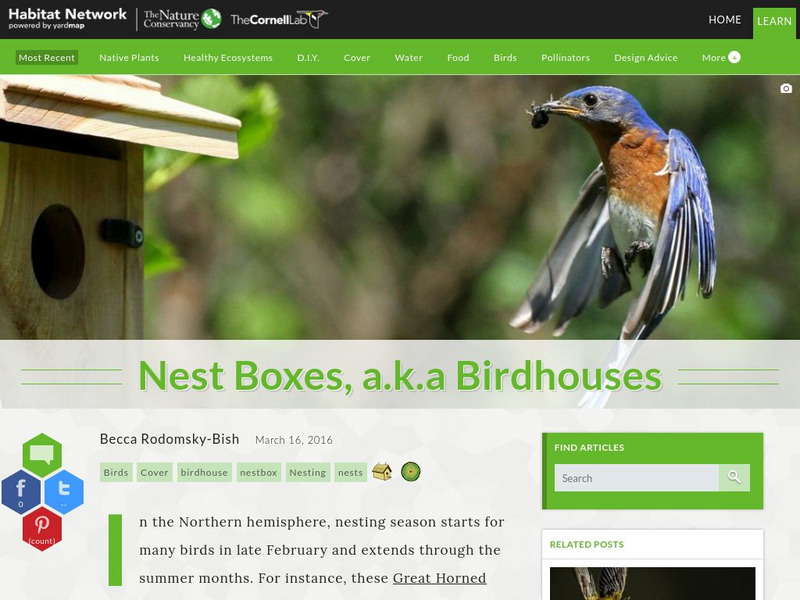Sea World Parks & Entertainment
Sea World: Animal Bytes: Gorillas
This site from SeaWorld/Busch Gardens provides a wealth of information regarding gorillas. Content includes a focus on gorilla habitats and distribution, physical characteristics and special adaptations, senses, behavior, diet,...
Other
Patagonia: A Bear's Journey (An Animal Migration Resource)
A resource about one grizzly bear's 50-mile migration that underscores the environmental issues associated with shrinking wildlife habitats.
A-Z Animals
A Z Animals: Animal Facts: Black Rhinoceros (Diceros Bicornis)
Provides an overview of the Black Rhinoceros, including their habitats, appearance, behaviour, diet, and much more. Images of this species and statistics can also be found here.
A-Z Animals
A Z Animals: Animal Facts: Bobcat (Lynx Rufus)
Provides an overview of the Bobcat, including their habitats, appearance, evolution, behaviour, breeding, diet, and much more. Images of this species and statistics can also be found here.
A-Z Animals
A Z Animals: Animal Facts: Deer (Odocoileus Virginiana)
Provides an overview of Deer, including their habitats, appearance, behaviour, diet, and much more. Images of this species and statistics can also be found here.
A-Z Animals
A Z Animals: Animal Facts: Dwarf Crocodile (Osteolaemus Tetraspis)
Presents an overview of the Dwarf Crocodile, including their habitats, size, evolution, behavior, diet, breeding, and conservation status. Images of this species and fun facts can also be found here.
E-learning for Kids
E Learning for Kids: Science: Easter Island: What Can We Find in a Pond?
Explore Easter Island in this module to learn about the animals and their habitats.
Other
North Carolina Zoological Society: Field Trip Earth
Resources for students and teachers about animal conservation research programs around the world. Articles, interviews, and field reports are available.
The National Gallery (UK)
National Gallery, London: Ite: Learning Ideas and Outcomes: Subject Focus
This extensive lesson plan uses the painting 'A View of Het Steen in the Early Morning' as a starting point to learning in science. Students will use the work by Reubens to learn about a variety of animals and their habitats.
ClassFlow
Class Flow: Identify the Animal and Its Biome
[Free Registration/Login Required] Each page contains a hidden picture of an animal. Students use a small viewer to expose small pieces of the picture.
BBC
Bbc: Animal Field Guides
Can you identify animal tracks, animal droppings, nests and homes? Use this excellent resource to help you learn.
Other
Kind News Online Teacher Zone
Readings, activities, and lesson plans from KIND News Online. Teach children social responsibility with focus on animal protection and environmental conservation. News articles available in both English and Spanish.
Utah Education Network
Uen: How Do I Survive?
Compare and contrast the characteristics of living things in different habitats.
Other
Glin: Endangered Species Network
Links to the Gulf Point, endangered species and habitats, and Great Lakes declining amphibians. There are links to events, laws, species and related resources.
Kidport
Kidport: Animal Comparisons
This site provides a very brief scenario about the similarities and differences of animals.
Utah Education Network
Uen: Life's Different Seasons
Recognize changes in bears and insects and compare them.
University of Illinois
University of Illinois Extension: Urban Text: Adventures of Herman the Worm
WORMS- What are they? Where did they come from? If you are interested in Herman the Worm's family tree (biologically speaking), his body structures, or all the facts about him that you'll ever need, go to "The Adventures of Herman the...
Other
Boggle's World Esl: Word Searches
A collection of more than 40 printable word search activities designed for ESL students. Searches are organized by level of difficulty (easy, intermediate to difficult) and cover a wide variety of themes, e.g., colors, verbs, the five...
EL Education
El Education: Local Habitat Survey and Animal Research
Students observe animals in several habitats and then choose one animal to research. Students learn about physical adaptations that help each animal live successfully in its habitat and then draw a picture of their animal which is later...
US Fish and Wildlife Service
U.s. Fish and Wildlife Service: Listed Species Believed to or Known to Occur in Each State
This page was created for quick access to pages that offer the most recent fact sheets, life history, and regulatory information for different animal species. Choose a state in the list to find a listing of animal species, and follow...
Read Works
Read Works: Organizing Information Into an Outline
[Free Registration/Login Required] In this activity, students will take notes as they read Animal Homes by Ann O. Squire. This information will then be organized into an outline. Includes printable materials for teacher and students.
Education Place
Houghton Mifflin: Eduplace: Mousekin's Lost Woodland
This interactive site has "Mousekin's Lost Woodland" environment game. Play this storytelling game with your friends and learn about different habitats.
Alabama Learning Exchange
Alex: Tad the Tadpole
Tad the Tadpole is designed to demonstrate how pollution in various areas affects wildlife in their native habitats. The lesson is designed to stress the importance of conservation for animals and their surrounding environment. Upon...
Cornell Lab of Ornithology
Habitat Network: Nest Boxes, a.k.a Birdhouses
Learn about the importance of bird house boxes in backyard habitats.
Other popular searches
- Powerpoint Animal Habitats
- Animal Habitats in Georgia
- Animal Habitats Math Games
- Animal Habitats Kindergarten
- Plant and Animal Habitats
- Lessons on Animal Habitats
- Animal Habitats Adaptation
- Math Animal Habitats
- Animal Habitats and Zoos
- Animal Habitats Bear
- Animal Habitats Webquest
- Australian Animal Habitats




















